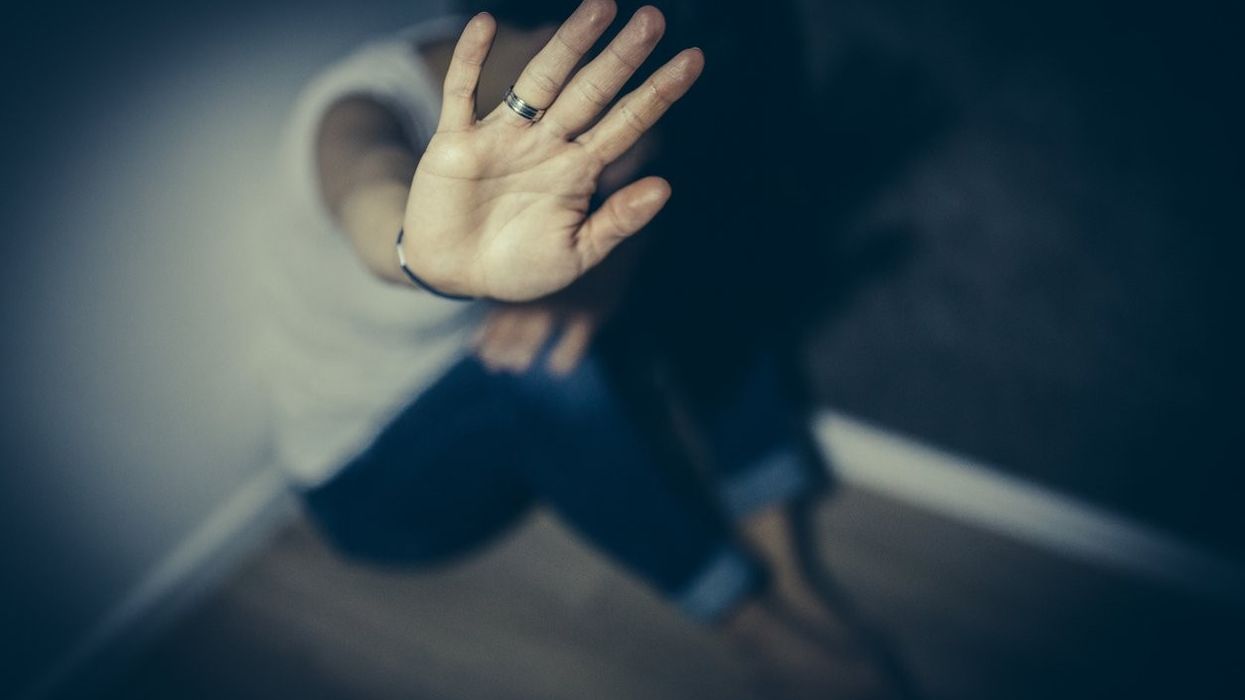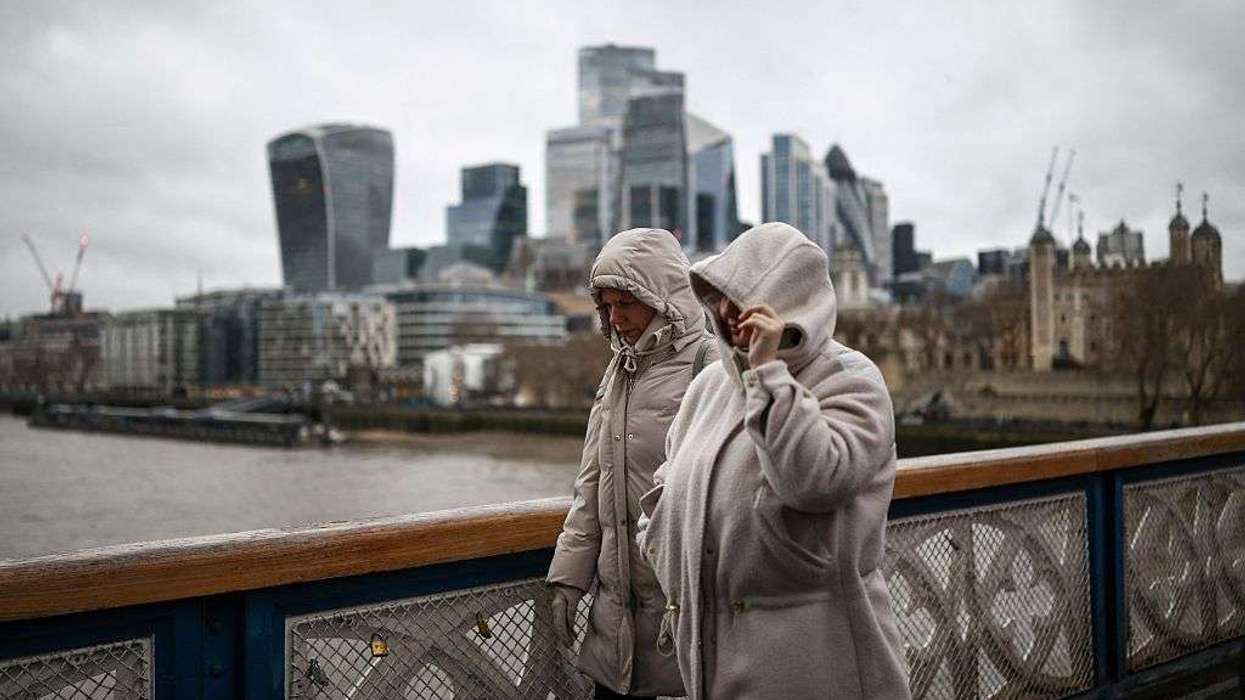THE government continues to fail south Asian women, girls and boys who are suffering domestic abuse, and it has not learnt lessons from the pandemic, campaigners have told Eastern Eye.
They said they remain concerned that should there be another pandemic, south Asians and minority groups would be in unnecessary danger.
One charity, Southall Black Sisters (SBS), has given written evidence to the Covid inquiry.
Dr Hannana Siddiqui, revealed to this newspaper that during the pandemic about 23,000 people phoned SBS for help to escape their abusers, tripling the demand for support.
“We’re very concerned because I think what happened with this pandemic was that they [the government] didn't have a plan quick enough.
“They should have planned, they should have intervened a lot more quickly and have everything in place, before the lockdown.
“Because the lockdown was a shock to the system, and if they had emergency funding, if they had lifted the no recourse to public funds requirements, and introduced other measures that would have made it easier for victims to go and report abuse.
“There’s a lot to be learned from this pandemic that you don't want to repeat it again.
“This is why we're intervening in the inquiry, because we want to make sure it's not repeated.”
Priorities

She was backed by the founder and president of the Freedom Charity, Aneeta Prem.
“I want to be optimistic and say it will be completely different [next time], the perpetrators won't be there at home, they [victims] will have places of safety to go to, they will have ways to talk to people,” she said.
“But those mechanisms haven't been put in place.
“One thing often we learn from history is we don't learn from history.
“What are we learning? What are we doing differently?
“At the moment that doesn't appear again to be a priority.
“At Freedom Charity, we are starting to plan if there was something else as horrendous as a pandemic, that girls, women are protected, we have to ensure we do more to make sure their voices are heard.”
Punch bags
During Covid, Eastern Eye reported that south Asian women and girls were being abused.
They could not seek help because the government ordered places of work and schools to close.
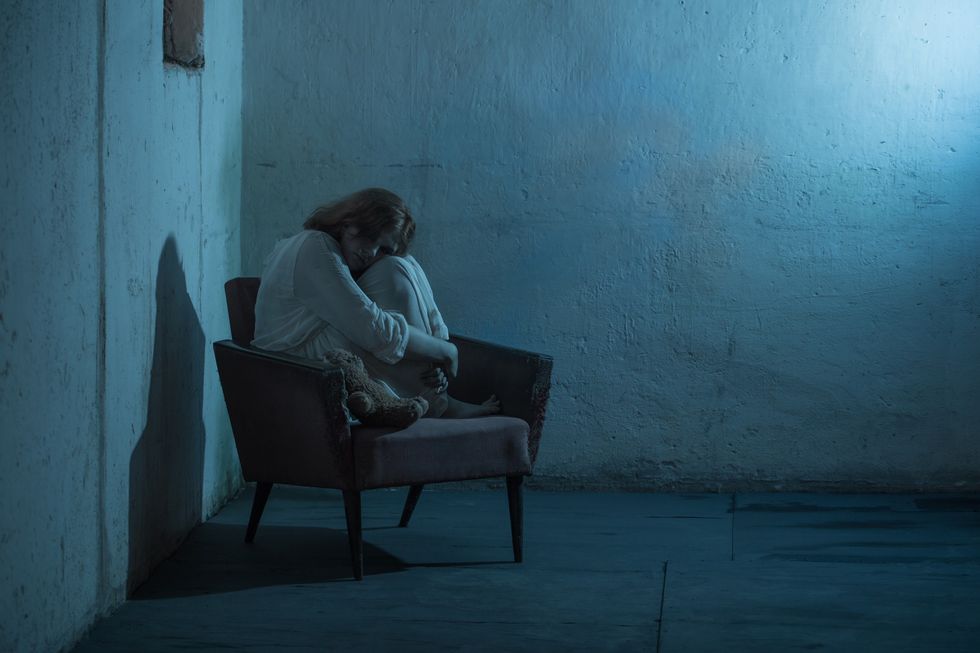
Prem told Eastern Eye that this meant that men, in particular, had a charter to abuse.
“During Covid, which for many of us might seem like a lifetime ago, it was incredibly haunting for anybody that had suffered any kind of domestic abuse in the past, because they were suddenly trapped in their homes, a place of safety, with the perpetrators.
“And if there hadn't been abuse in the past, Covid seemed to accelerate that whole bottleneck.
“It was like being in a pressure cooker, people told me, you're surrounded by people that are supposed to love and care for you, be it your partner, your husband.
“But you're in a situation where you can't go out, you're incredibly petrified about what's going on in the news, and you're in a situation where, for many people, income was substantially reduced, and people were using their partners as punchbags, literally.”
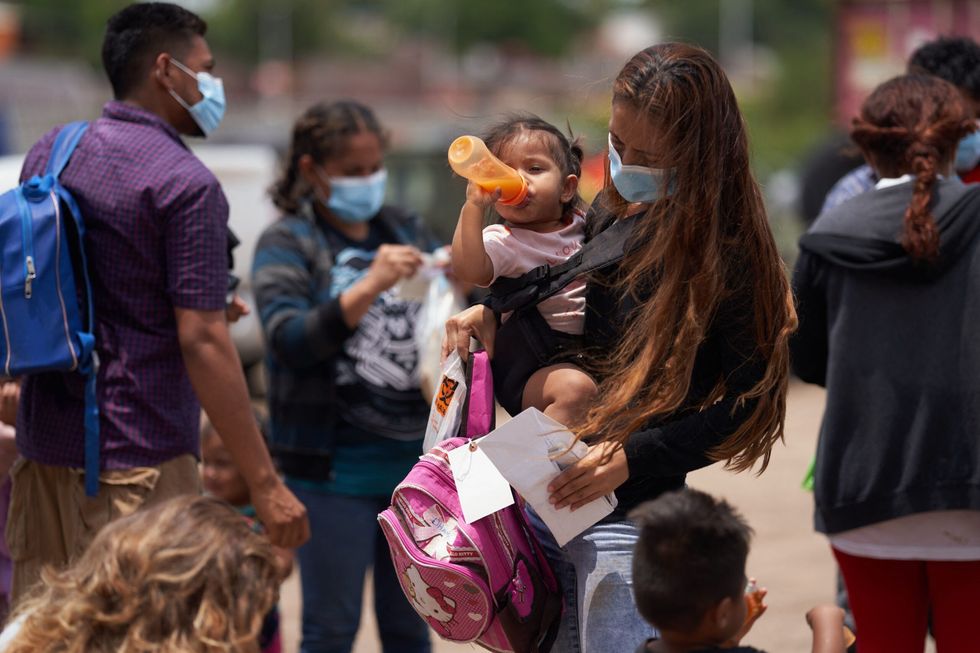
Prem said the charity’s helpline heard heart breaking and frightening stories from children.
“For young girls that were involved in forced marriage or dishonour abuse, that we deal with all the time, unfortunately, at Freedom Charity, it just highlighted the problem for them.
“They didn't have that escape of school, they didn't have the chance to be out amongst normal people doing normal everyday things.
“They were stuck in an abusive relationship at home with their family, where as a girl, they were less valued.
“We had a case of a young girl that contacted us covertly during Covid, who had Covid, who was in her bedroom self-isolating, and her brother had said, quite loudly, outside her bedroom door, ‘You need to stop giving her food, she's not worth it.’
“And she was petrified she was going to be in her room and be starved to death by her family.
“This is in UK a couple of years ago, how is that possible that that could even be a thought?”
In that case, Prem’s mother cooked meals and sent the food parcel to the young girl’s home pretending it came from the school – to give the teenager “a sense of self-worth”, she explained.
Arrest fear
Campaigners have told Eastern Eye that during the pandemic women’s refugees were full up.
SBS was also concerned for migrants who were in violent relationships because they had no “recourse to public fund”.
In effect, that meant they were penniless and relied on their abuser for food, shelter and clothing.
“Those who had no recourse to public funds or with immigration problems, were particularly vulnerable, because they felt that they had no rights in this country.
“So, they felt that if they left the house, they would be arrested by the police for leaving the house for no social distancing.
“What's emerging is, there was no messages to say that victims of domestic abuse were exempt and could leave the house and get help.
“That didn't happen till early April, when Priti Patel [then home secretary] made some announcements, then later on, there were mixed messages, Boris Johnson never gave a message that victims of domestic abuse were exempt until January 2021.
“So, there wasn't sufficient mainstream messaging going out for victims, to say, first of all, that they could leave, and secondly, that they should be able to approach any service for help.
“The problem is, those victims don't approach the police for help anyway, because they feel that they'd be arrested and deported, they were even less likely to go to the police.”
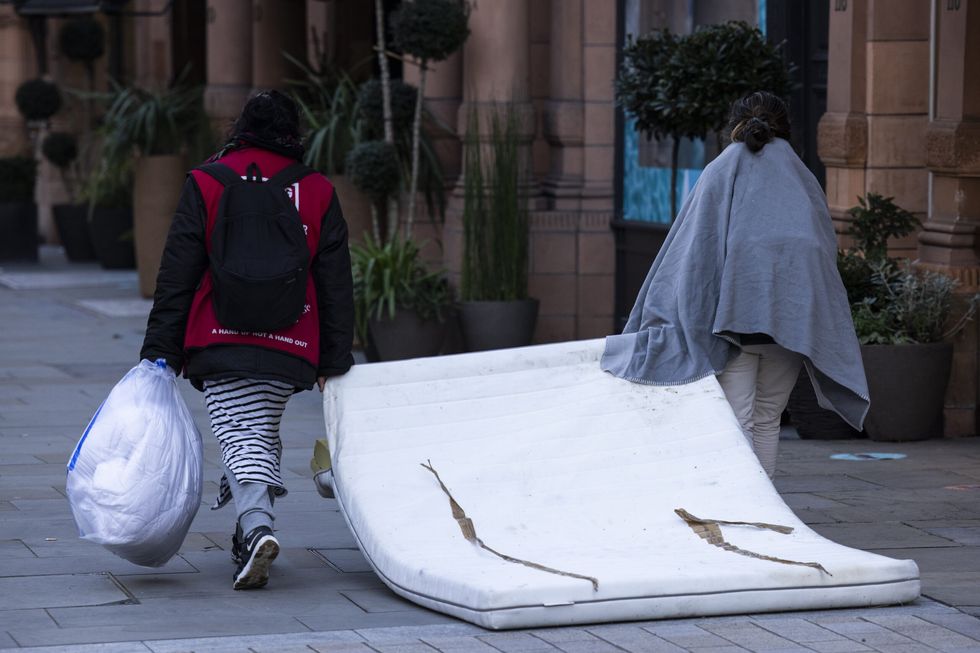
The government’s decision making was not culturally appropriate either, she said.
“The rough sleepers initiative, which if you were sleeping rough, you could get help from the local authority.
“But a lot of the women that needed help didn't want to sleep rough, therefore, they would more likely stay in abusive relationships or return to abusive relationships, rather than sleep rough.
“This made them very vulnerable to violence and exploitation, so that was the only kind of initiative that they [the government] did around homelessness, and institutions, which didn't really suit the women that we were trying to assist.
“They needed safe refuge accommodation, or at least safe, hotel or bed and breakfast accommodation, but they couldn't afford that because they couldn't access benefits.”
Siddiqui also told Eastern Eye that minority organisations were not being funded properly because of one reason.
“Racism, there's discrimination,” she said.
“There's always been discrimination, all our campaigns around migrant women we have not been able to achieve mainly because we don't get the same level of services support for migrant women, even if they are victims of domestic abuse, who they say they want to support and protect.”
Extra cash
Because of restricted movement and rules about households mixing during the pandemic, survivors could not seek help from relatives to escape their abuser.
A barrister, Liz Davies KC, is representing SBS at the inquiry.
Last week (1), she questioned the former health secretary, Matt Hancock, about whether the government had considered allowing relative to become places of sanctuary for women and children being abused.
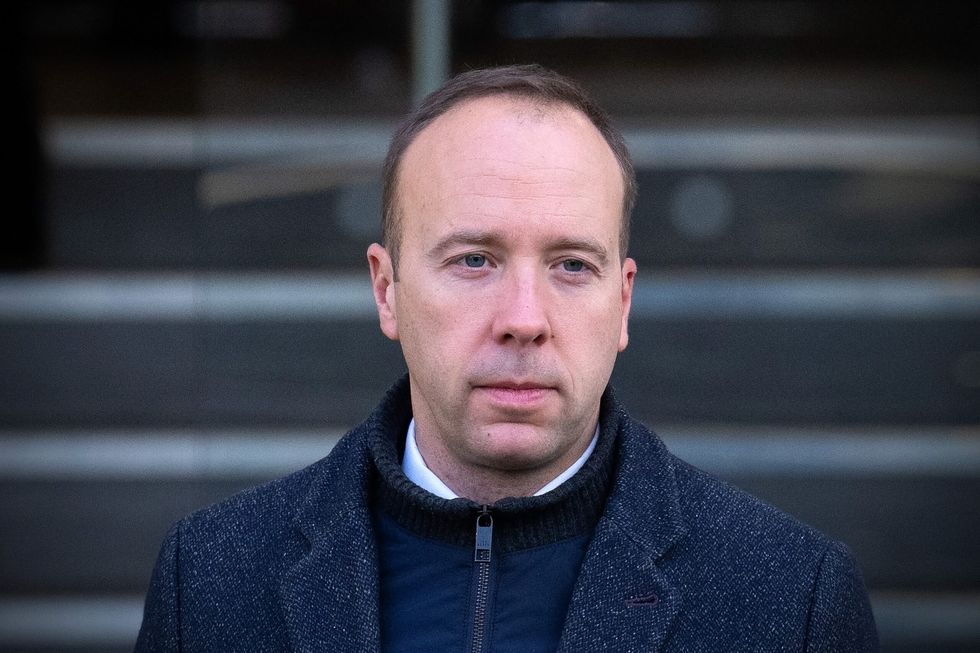
“I don’t recall that being brought to my attention, that consideration,” Hancock responded.
“I had an excellent team who cared very deeply about this subject, and the impact of the regulations on people, as you say mostly women who are subject to domestic abuse and violence.
“Had it been I’m highly confident that I would have said that we should have put in place such provision because the impact on the overall virus would have been relatively low because although the numbers are far too big, they are, as a part of the population, relatively low.
“And in the same way that we realised that our initial regulations in terms of how they impacted funerals, for example, were much firmer in their interpretation on the ground than we had intended, and therefore changed them, that is the sort of thing I certainty would have been open to considering.”
Siddiqui said that SBS lobbied the government for extra money to help those being beaten or coerced.
In March 2020, the government allocated an extra £27 million, but SBS did not get any money until June that year.
“The surge in demand wasn't really being tackled, we didn't get funding from government and national government until about June 2020, after a lot of lobbying, and after we tried to take them to court, then some money was released from central government.
“We went to the mayor of London [Sadiq Khan] before that, and the mayor of London actually did fund a hotel, a crisis project with us and Women's Aid.
“So, we were able to find some temporary emergency accommodation for women through the mayor of London, but not national government.”
Legal concerns
Former home secretary, Dame Priti Patel, told the inquiry last month (9 November) that she could not be certain whether the threat of legal action was the reason why the government released the money.
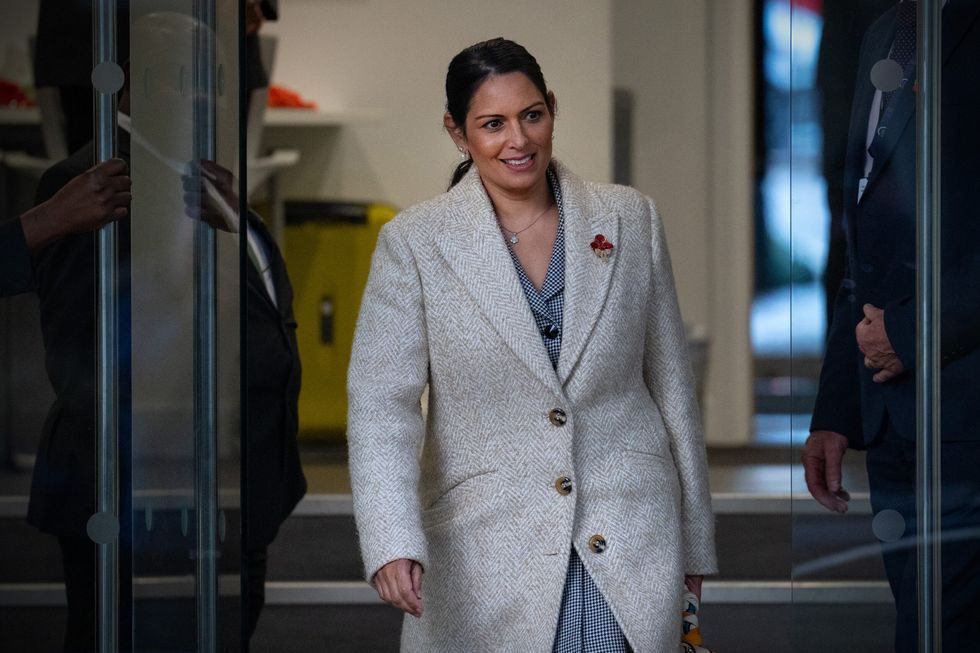
But she was certain that her colleagues and she took the problem of domestic abuse seriously.
“We were working with Louisa Rolfe at the Metropolitan Police, and within our policing call frameworks as well early on in anticipation, lockdown, post lockdown, the surges that would come within helplines, and also the inevitability of the consequences of domestic abuse, violence, vulnerabilities.
“So, I would absolutely say, particularly with policing colleagues, and that’s predominantly where our equities were at the time in the run-up to lockdown, there were a range of discussions taking place within the Home Office and with policing colleagues.”
The barrister also asked why the government refused to let abused migrant women have recourse to public fund during a time of emergency.
“We could get into a wider debate about the implications of suspending that condition, because there are then legal implications,” said Patel.
“If you suspend a condition for a period of time, if you then reinstate those conditions, it then takes — and I do recall reading advice at the time, some of the legal challenges just around suspending — it may seem straightforward to organisations lobbying for that change.
“But I do specifically recall receiving advice at that time saying that it would be legally challenging to then go back and restate.
“And I appreciate, the organisation you’re representing, the position that you take around no recourse to public funds, but obviously that condition exists for a reason.”
Lost generation
In our reporting at the time, we revealed how parents were forcing their young children to marry in virtual ceremonies.
Because schools were closed, Prem said that a generation of children have disappeared.
This, she said, concerned her greatly and did not bode well for the future.
“We need to teach young men and boys that violence against anybody, but certainly among women and girls, is completely unacceptable and will not be tolerated in this country,” she said.
“And when it's going wrong, that if you come forward and report, you have help and support.
“People that were trapped in these horrendous violence situations at home, didn't have access to refuges, because they were full, they were trapped in their houses, in the most horrendous, scary situations that we can't even imagine.
“This went on, not just for days and hours, but weeks and months, and for many girls, they never returned to school, and they've been lost to us.
“We don't know what's happened to them.
“We know many did get forced into marriage, but what has happened to them now?
“We failed a whole generation, really.”
Eastern Eye contacted the government for comment.
